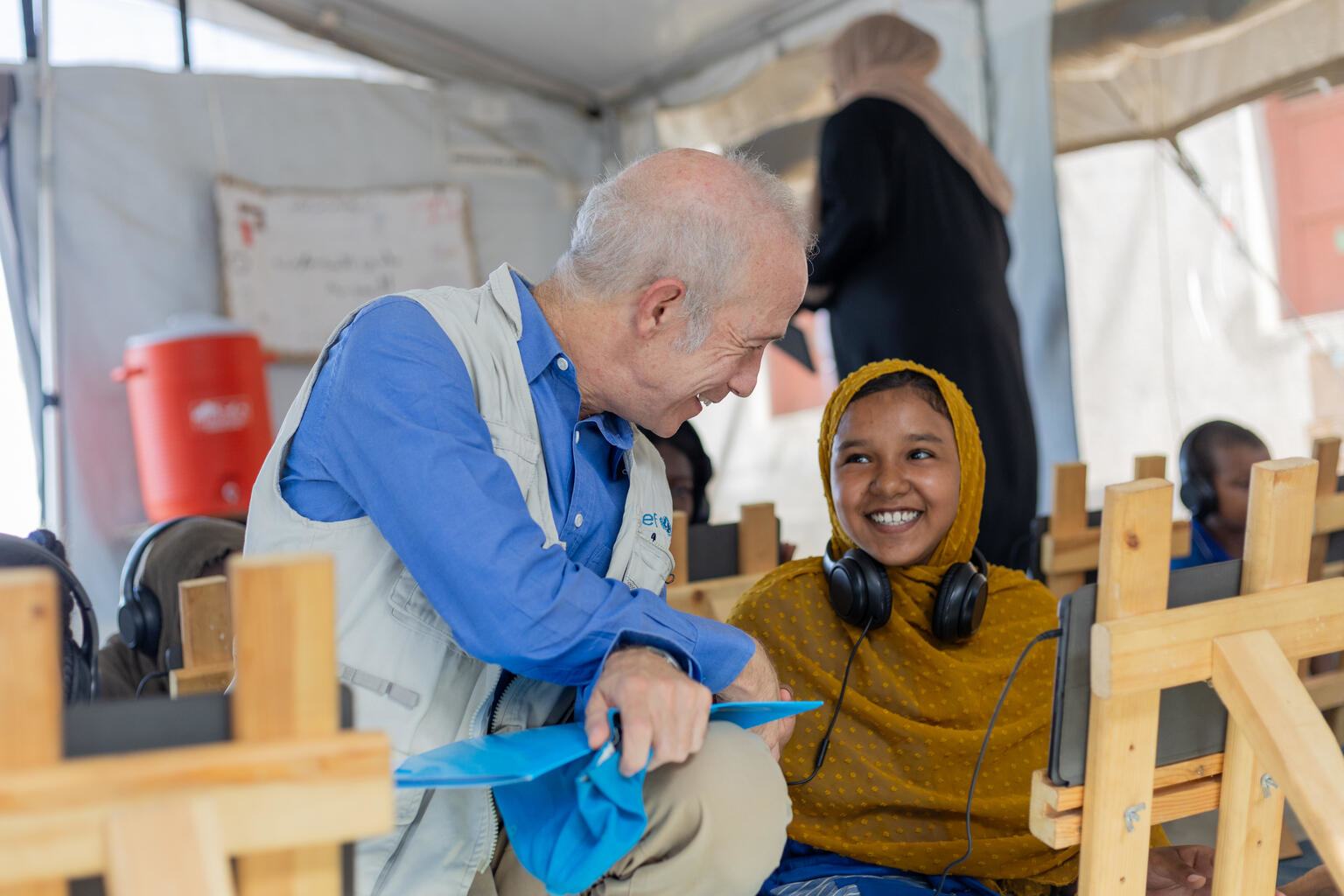
UNICEF: Sudan Faces ``The Largest Educational Emergency``
moatinoon
The United Nations has stated that Sudan is now facing "the largest educational emergency," which will have a profound impact on Sudanese society "for generations to come." Approximately 80 percent of children in Sudan are not attending school.
Sheldon Yett, UNICEFs representative in Sudan, emphasized that Sudanese children are not responsible for the ongoing war, which has been raging for more than a year and a half, yet they are its primary victims. Children are being killed, injured, and subjected to a long list of human rights violations, in addition to facing malnutrition and the spread of infectious diseases.
Yett explained that at least 150 children have been killed since April, with many others injured. He added, "Just this past weekend, I received reports of around 16 children killed, alongside approximately 50 people, when a market in North Darfur was bombed."
Regarding the cholera outbreak and other diseases, Yett mentioned, "There is a massive cholera outbreak that is expanding daily. Thousands of people have been affected, and hundreds have died. We’ve chartered a plane and brought in about 1.8 million doses of oral cholera vaccine, which is highly effective. We’re working with partners and the Ministry of Health to ensure as many people as possible are vaccinated as quickly as possible. But more importantly, we need to ensure people have access to safe drinking water and proper sanitation."
On the difficulties of access, Yett stated that it is extremely challenging to reach the areas they want to access in Sudan for many reasons. "The country’s size is enormous, and with the rainy season now, roads often turn into mud-filled swamps. It can take weeks for trucks to reach their destinations, and bridges are being bombed. We need permission from all warring parties to move supplies. Supplies must be brought across borders from Chad or South Sudan and through frontlines to reach needy communities. This process can take weeks. Every step requires negotiation, and we must work with multiple warring parties, which is no easy task."
On food security and the overall outlook for the country, Yett commented, "In the near term, the situation is not good. We are still facing tremendous difficulties in bringing in staff, supplies, trucks, food, nutritional supplements, water, sanitation supplies, health supplies, and everything else that comes with it — the complete package for children."
He added, "Distances are vast, and access is difficult. Frankly, we need to obtain every permit imaginable, and it takes weeks of negotiation, often requiring follow-up at all levels to get supplies where they need to go. It is extremely difficult to accomplish. There are bureaucratic obstacles and fighting forces, and we need permission from authorities to deliver our supplies and personnel to where they need to be. This is absolutely critical if we are to provide the necessary support to address this famine."

